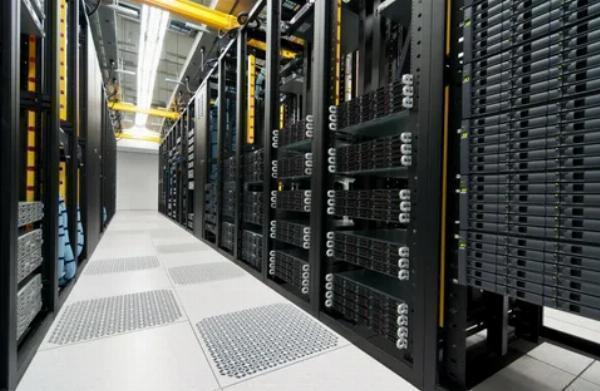How NAS optimizes data archiving for scientific institutions?

Strong 8k brings an ultra-HD IPTV experience to your living room and your pocket.
Scientific institutions generate massive amounts of data daily, from research experiments to collaborative projects and publications. Managing and archiving such vast quantities of data requires a reliable and efficient solution. Network Attached Storage (NAS) is one of the most effective technologies for optimizing data archiving in scientific institutions. It ensures that data is stored securely, remains accessible, and can be retrieved as needed. NAS has become indispensable for institutions managing complex and large-scale datasets while maintaining long-term data accessibility and compliance with regulatory standards.
The Growing Need for Efficient Data Archiving
With advances in scientific research and technology, the volume of data produced by scientific institutions continues to increase exponentially. From genomics research to environmental studies, datasets are becoming larger, more complex, and critical for long-term projects. Traditional methods of storing such data, such as local hard drives or USB storage, are no longer viable for meeting the demands of modern scientific research. NAS provides an efficient and scalable solution for handling and archiving such large datasets.
NAS systems are designed to centralize data storage, allowing institutions to manage their data from a single platform. This centralization minimizes the risks associated with data being scattered across multiple devices and increases efficiency by consolidating storage needs into one manageable system.
Scalability for Expanding Scientific Data
One of the primary advantages of NAS for scientific institutions is its scalability. As research expands, so do data storage requirements. NAS allows institutions to start with a basic storage setup and gradually expand as data volumes increase. This scalability means that institutions do not have to overinvest in storage systems upfront. Instead, they can add additional drives or NAS devices as their storage needs grow.
Scalable NAS systems also accommodate changing data archiving demands. Whether a scientific institution needs to store data for a few years or decades, NAS ensures that the storage infrastructure can adapt and grow over time without the need for costly system overhauls.
Streamlining Data Access and Collaboration
NAS optimizes data archiving by allowing streamlined access to archived information. One of the key challenges in managing large datasets is ensuring that researchers can access archived data quickly and efficiently. NAS provides centralized storage, allowing authorized researchers to access archived data from any location, ensuring that collaboration is not limited by geographical boundaries.
Scientific institutions often involve teams from multiple departments or even multiple organizations, making it essential for archived data to be accessible to various stakeholders. NAS enables seamless data sharing, fostering collaboration and improving research outcomes. Researchers can share files, access archived data, and collaborate on projects without needing complex data transfer methods or external drives.
Enhancing Data Security and Integrity
Data security is a top priority for scientific institutions, especially when handling sensitive research data. NAS systems come equipped with robust security features to protect archived data from unauthorized access or corruption. By utilizing encryption, user authentication, and access controls, NAS ensures that only authorized personnel can access specific datasets. This is crucial for maintaining data integrity and ensuring that sensitive research information remains protected.
NAS also provides institutions with advanced backup and redundancy options. These features ensure that archived data is backed up in real time and protected from data loss due to hardware failures or system errors. Redundancy mechanisms like RAID (Redundant Array of Independent Disks) are integral to NAS setups, ensuring that even if one drive fails, data remains safe and accessible.
Ensuring Compliance with Data Retention Policies
Scientific institutions often have to comply with strict data retention policies, whether imposed by regulatory bodies or internal guidelines. These policies dictate how long data must be stored and when it can be deleted or archived. NAS helps institutions meet these compliance requirements by providing customizable storage solutions.
NAS can be configured to archive data in line with institutional or governmental data retention requirements. Automated backup schedules ensure that the most recent versions of research data are stored and archived securely. Furthermore, NAS offers long-term storage capabilities, ensuring that historical data can be accessed as needed, even years after its initial storage.
Supporting Long-Term Data Preservation
For many scientific institutions, archived data is not only a resource for current projects but also serves as a foundation for future research. In fields such as astronomy, environmental science, and genomics, data collected today may have relevance for research conducted decades into the future. As such, NAS systems are designed to support long-term data preservation.
NAS supports data deduplication and compression, optimizing storage space and reducing the cost of long-term archiving. This helps institutions manage their storage requirements without incurring unnecessary expenses. Additionally, NAS integrates with cloud-based storage systems, offering hybrid solutions that combine on-premises and cloud-based storage to enhance data protection and redundancy.
Optimizing Data Organization and Retrieval
The sheer volume of data generated by scientific institutions makes it essential to organize data in a way that facilitates easy retrieval. NAS provides advanced file management and indexing capabilities, allowing researchers to organize data into logical structures. Metadata tagging and search functions further streamline data retrieval, ensuring that scientists can quickly locate specific datasets when needed.
NAS systems also offer automation features that simplify the archiving process. Data can be automatically transferred to the archive, eliminating the need for manual intervention and reducing the risk of human error. This automation allows researchers and IT personnel to focus on more critical tasks, improving overall efficiency within the institution.
Cost-Effective Data Archiving Solutions
NAS is a cost-effective solution for scientific institutions that need to manage large-scale data archiving. Compared to traditional storage solutions, NAS offers greater flexibility and scalability at a lower cost. The pay-as-you-grow model allows institutions to invest in storage as their needs increase, preventing unnecessary upfront costs.
In addition to reducing storage costs, NAS systems offer energy-efficient configurations that help lower operating expenses. With built-in data management features, NAS minimizes storage inefficiencies and ensures that institutions only use the storage they need.
Conclusion
NAS devices plays a critical role in optimizing data archiving for scientific institutions. Its scalability, data security, and long-term preservation capabilities make it an ideal solution for managing vast amounts of research data. By centralizing data storage, streamlining access, and supporting compliance with data retention policies, NAS enables scientific institutions to efficiently store and retrieve the data necessary for groundbreaking research. As the demand for data-driven research continues to grow, NAS systems will remain essential for ensuring that scientific institutions can archive, manage, and access their research data with ease.
Note: IndiBlogHub features both user-submitted and editorial content. We do not verify third-party contributions. Read our Disclaimer and Privacy Policyfor details.







